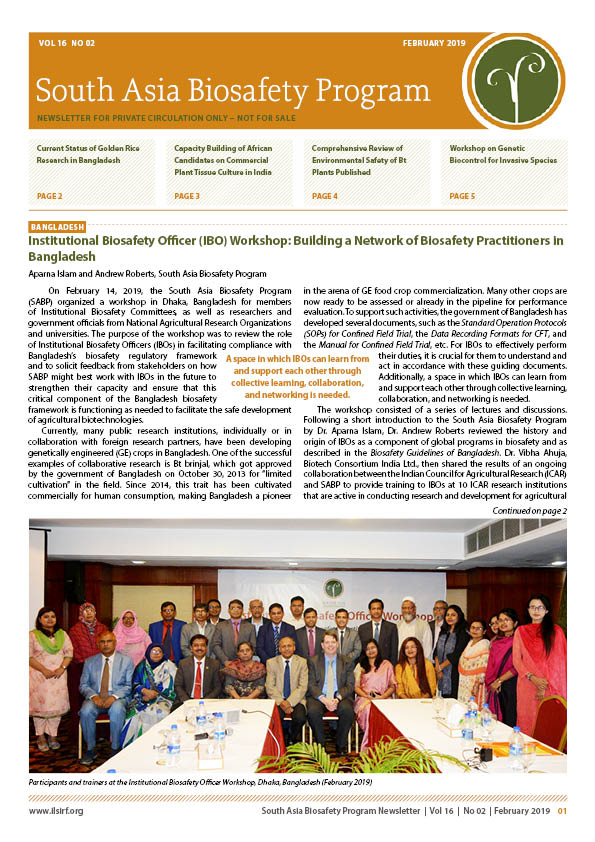Dhaka, Bangladesh
2019-02-14
9:00am – 4:30pm
Hotel Sarina
In the final two decades of the 20th Century, Bangladesh engaged in research in plant biotechnology, beginning with plant tissue culture. Seeing the potential to improve existing crops against various constraints, research soon continued to genetic transformation. Since then, research to develop genetically engineered (GE) crops has progressed rapidly, both at public and private research institutes, as well as universities. Considering modern biotechnology’s potential contribution to enhancing food and nutritional security, management of biotechnology has become a major issue. In light of this, the government of Bangladesh has taken several commendable steps and has developed a regulatory regime through the Biosafety Guidelines (2006), the National Biosafety Framework (2007), the Bangladesh Biosafety Rules (2012), the Guidelines for Food Safety Assessment of GE Foods (2012), and the Environmental Risk Assessment Guidelines for GE Plants (2014).
Currently, many public research institutions, individually or in collaboration with foreign research partners, have been developing GE crops in Bangladesh. One of the successful examples of collaborative research is Bt brinjal, which got approved by the government of Bangladesh on October 30, 2013 for “limited cultivation” in the field. Since 2014, this trait has been cultivated commercially for human consumption, making Bangladesh a pioneer in the arena of GE food crop commercialization. Many other crops are now ready to be assessed or already in the pipeline for performance evaluation. To support such activities, the government of Bangladesh has developed several documents, such as the Standard Operation Protocols (SOPs) for Confined Field Trial, the Data Recording Formats for CFT, and the Manual for Confined Field Trial, etc.
Institutional Biosafety Officers (IBO) need to perform their activities in accordance with these documents. It is therefore crucial to understand these guiding documents and create space to learn from and support each other through collective learning, collaboration, and networking. Against the backdrop of continued developments in both research and regulation for biosafety in Bangladesh, the South Asia Biosafety Program (SABP) arranged a day-long workshop in Dhaka on February 14, 2019 to initiate a collaboration in partnership with the Institutional Biosafety Officers (IBOs) and researchers of relevant institutions involved in GE research in Bangladesh and to establish a network of practitioners who can exchange experiences and knowledge about best practices for ensuring biosafety during the research and development of GE plants. This program was modeled after similar efforts organized by SABP and the Indian Council for Agricultural Research (ICAR).
This workshop is featured in the February 2019 edition of the South Asia Biosafety Program Newsletter.
